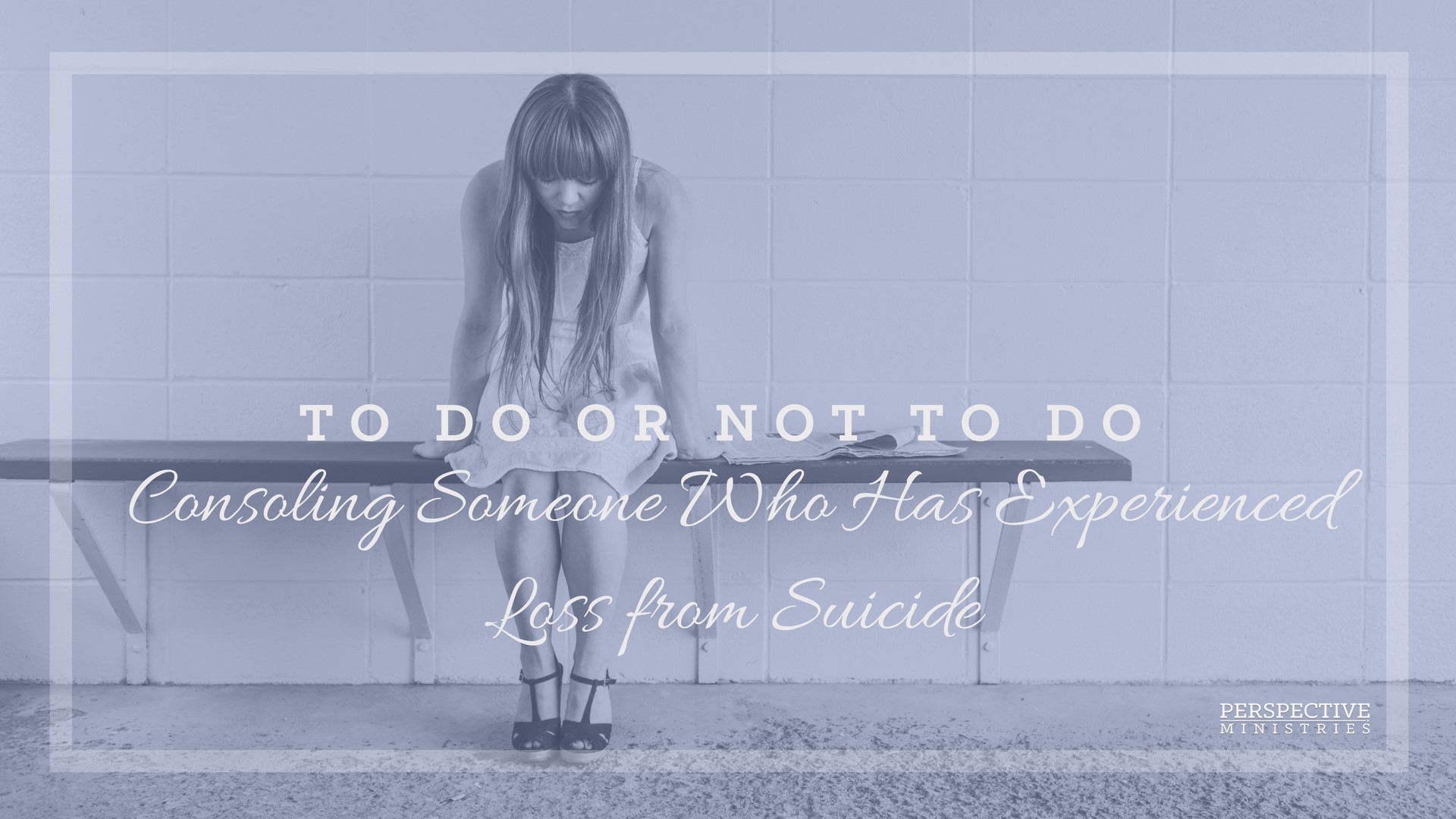 First know this: The one who chooses suicide is experiencing torment – to them, death was their only alternative. Their struggle was not against flesh and blood. Even Christians will wrestle against the spiritual forces of darkness.
First know this: The one who chooses suicide is experiencing torment – to them, death was their only alternative. Their struggle was not against flesh and blood. Even Christians will wrestle against the spiritual forces of darkness.
- Don’t minimize the loss – they are not better off without their loved one and they do not need to find someone better at this moment. Don’t think that because they have children or “have so much to be thankful for” they are not in deep grief.
- Don’t give uninvited advice. You could suggest, “Have you thought about …?”
- Don’t over-spiritualize the loss – he’s in a better place, God will use it for good, you are better off. Proverbs 25:20 says it perfectly, “Like one who takes off a garment on a cold day, or like vinegar on soda, is he who sings songs to a troubled heart.”
- Do show up, even if you are afraid you might do or say the wrong thing. Your physical presence in their time of hurt means more than many words.
- Do listen actively – speak less, listen more.
- Don’t ask about details of the death or discuss how they died or what method they used.
- Don’t try to relate because you know a story of someone else who “did the same thing” and then give the graphic details. Even if you share similar circumstances, every story is unique.
- Don’t place blame – did you see this coming, this is genetic, is he bi-polar, someone probably said something to “put them over the edge.”
- Don’t make negative comments about the one who died. It is never ever okay to say negative things about the one who died to one the person who is grieving.
- Do allow your friend the gift of telling their story over and over again. “Suicide is awkward to talk about with well-meaning people who asked how your loved one passed away. But because it wasn’t a “taboo” topic in our family, I never felt ashamed or embarrassed to explain my dad’s story to others. I was thankfully able to recognize that this was his choice, not mine.” – Kayla
- Don’t make assumptions – he/she is in Hell, what a selfish thing to do, they must have not had faith in God.
- Avoid gossip, slander, and malice – these are the enemy to healing.
- Don’t try and fix the problem because you can’t.
- Do allow them to grieve while you hold their hand as you would when visiting a friend laying in a coma in the hospital bed. You would never try to physically fix them but would sit by their side until healing takes place.
- Don’t attempt to explain even when the one left behind is wrestling through explanations. There are many sides and perspectives to the story. It is never helpful to try to diagnose the reason the loved one chose to take their life. Just love the grieving person and be there for them.
- Do allow them to wrestle with the same questions. It will take a lot of patience, love, prayer, and time for them to work through this.
- When necessary, carefully – very carefully, speak truth in love at the right time (it may be months or years later).
- Don’t evaluate their process in grief giving them a report card or grade on their emotional status. Emotions will change and it really does take time.
- Do know that suicide is numbing. It is brutally painful and so shocking that it leaves the grieved stunned for years. “I was very young when Daddy passed away so my memory isn’t clear. It took several years before it finally began to sink in that I’d never see my dad on earth again. As we all know, those first few years are always a blur. But now as I look back, I can see there was a peace surrounding me even in the midst of the horrible things that had happened. It was almost as if God was saying, “It’s okay, I’ve got this and you.” So even though we experienced an incredible “bad,” I could see God using it for good the whole time.” – Isaac
- Do trust God with them. Trust that God is sovereign overall. Suicide is not the unpardonable sin.
(If you are thinking about suicide, are worried about a friend or loved one, or would like emotional support, the Suicide Lifeline network is available 24/7 across the United States, please call 988 or 1-800-273-8255






